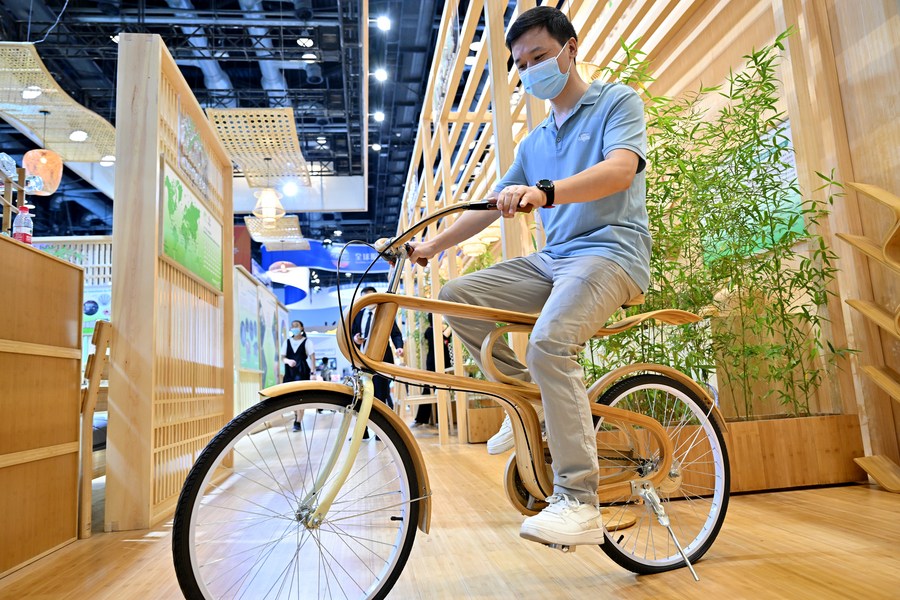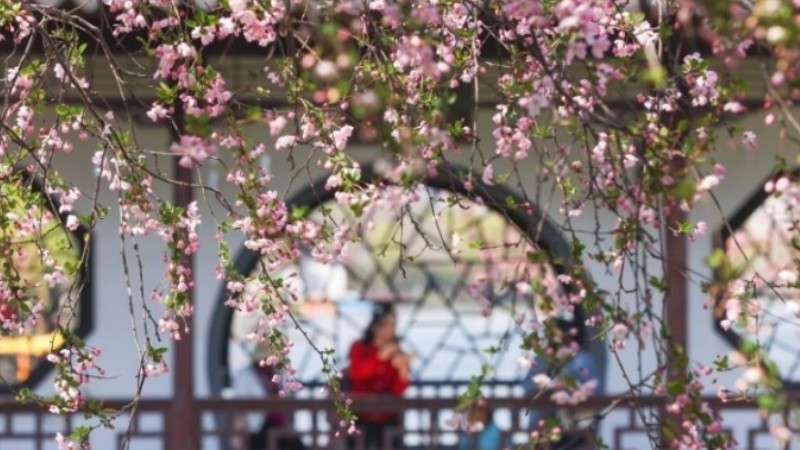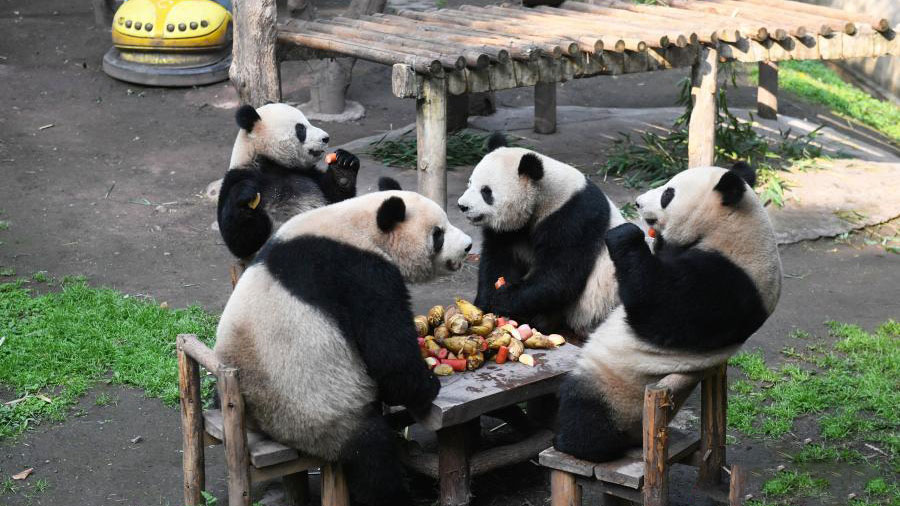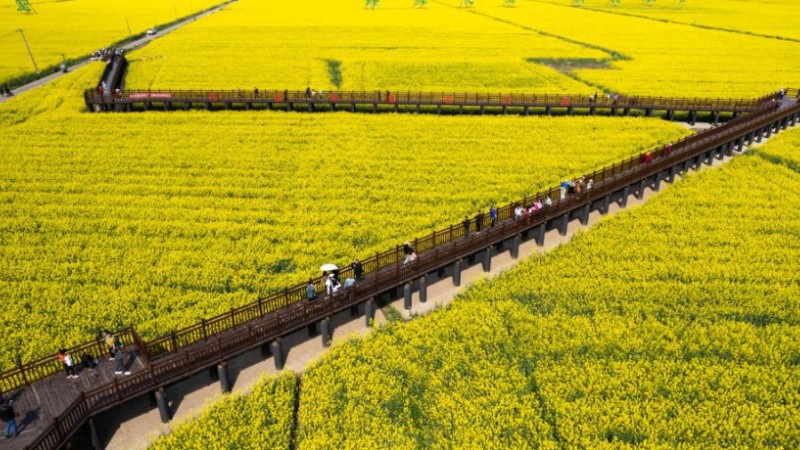Bamboo export paves road to wealth for mountainous village

A visitor tries a bamboo bicycle at the environmental services exhibition during the 2022 China International Fair for Trade in Services (CIFTIS) in Beijing, capital of China, Sept. 3, 2022. (Xinhua/Li Xin)
GUANGZHOU, March 17 (Xinhua) -- The sight of clusters of tall bamboo drying in the sun serve as an inspiration for 48-year-old Tan Futing's pursuit of prosperity.
Tan hails from Manchang Village, Hedong Town, located in Lianshan Zhuang and Yao Autonomous County in south China's Guangdong Province. The village is known for its abundant production of Lizhu, a type of slender bamboo ideal for making fishing rods, ski poles, fences, and other products due to its straightness and sturdiness.
The bamboo goes through a process that involves washing, drying, screening, grading, cutting, lashing, and packing. After that, it is boxed and shipped to overseas markets, where bamboo culture is appreciated for its humble, firm and indomitable spiritual connotation.
As early as a decade ago, Huang Changkuan, the Party secretary of Manchang Village, led the villagers to start a bamboo business using the Lizhu variety. The business mainly involves processing the cut bamboo and shipping them to export companies for sale in overseas markets.
"Our bamboo sticks are thinner and harder with better elasticity than those in other regions, making them a preferred choice of export companies," Huang said.
Every year, during the winter thaw and the slack farming season, it is the felling period of Lizhu bamboo. The processing factory's small warehouse quickly fills up with hundreds of tonnes of bamboo freshly cut and processed by villagers.
"I've worked here for three years. The timing of farming and bamboo processing is just staggered, so I can earn two shares of money a year. Thanks to this additional income, I was able to add a new floor to my building last year," said Tan Futing, adding that he can earn more than 200 yuan (about 28.9 U.S. dollars) a day by cleaning bamboo, which amounts to more than 5,000 yuan a month, resulting in a net increase in income of 20,000 yuan annually.
It is recorded in the local county annals that Hedong Town is known for its abundance of bamboo. In 1931, Li Yongsheng, a businessman, came to Hedong to establish the Nanhai Yongsheng Bamboo Factory. He purchased a large quantity of bamboo and sold it abroad, which led the locals to realize the value of the bamboo growing in the mountains. As a result, almost every family began to venture into the mountains to gather bamboo, resulting in the growth and prosperity of the bamboo business.
Today, Hedong exports thousands of tonnes of bamboo to the United States, the Netherlands, Japan and other countries every year. As a commodity, there is a growing international demand for bamboo, leading to an increase in its price.
"Last year, our village sold 1,300 tonnes of raw bamboo to export companies, and the price of bamboo rose from 25 yuan per 100 kilograms a decade ago to 50 yuan now. The villagers have become rich with bamboo," Huang said.
Although the villagers rely on bamboo to boost their income, they exercise moderation in its use.
The frequency and timing of cutting bamboo matter. The old bamboo can regenerate new shoots and even grow more lush than before, as long as its roots are not damaged, Tan explained, adding that the sustainability of the villagers' income is contingent on the preservation of the green hills.
"Going ahead, our village should accelerate the industrialization of bamboo, expand the scale of the factory, and strive to make villagers earn more for better life," Huang said.
Photos
Related Stories
Copyright © 2023 People's Daily Online. All Rights Reserved.









